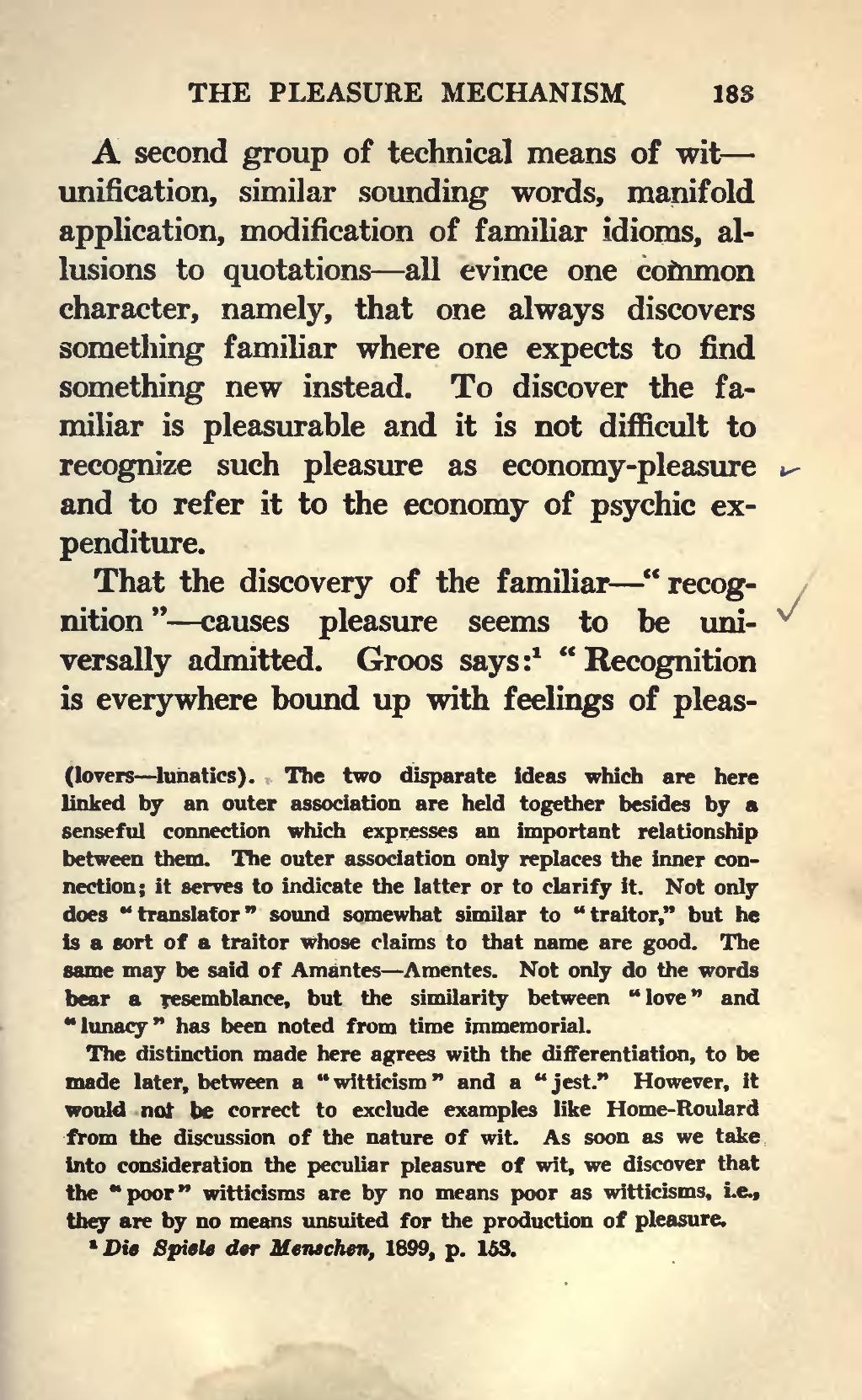lunatics). The two disparate ideas which are here linked by an outer association are held together besides by a senseful connection which expresses an important relationship between them. The outer association only replaces the inner connection; it serves to indicate the latter or to clarify it. Not only does “translator” sound somewhat similar to “traitor,” but he is a sort of a traitor whose claims to that name are good. The same may be said of Amantes—Amentes. Not only do the words bear a resemblance, but the similarity between “love” and “lunacy” has been noted from time immemorial.
The distinction made here agrees with the differentiation, to be made later, between a “witticism” and a “jest.” However, it would not be correct to exclude examples like Home-Roulard from the discussion of the nature of wit. As soon as we take into consideration the peculiar pleasure of wit, we discover that the “poor” witticisms are by no means poor as witticisms, i.e., they are by no means unsuited for the production of pleasure. </ref>
A second group of technical means of wit—unification, similar sounding words, manifold application, modification of familiar idioms, allusions to quotations—all evince one common character, namely, that one always discovers something familiar where one expects to find something new instead. To discover the familiar is pleasurable and it is not difficult to recognize such pleasure as economy-pleasure and to refer it to the economy of psychic expenditure.
That the discovery of the familiar—“recognition”—causes pleasure seems to be universally admitted. Groos says:[1] “Recognition is everywhere bound up with feelings of pleasure
- ↑ Die Spiele der Menschen, 1899, p. 153.
